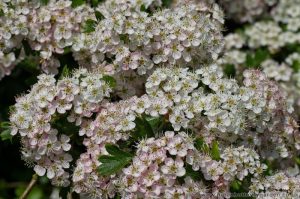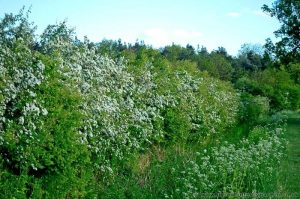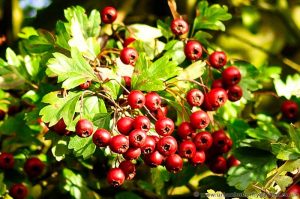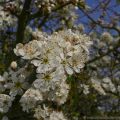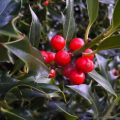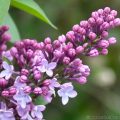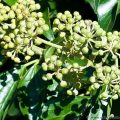Hawthorn, Native Shrub in Hedgerows across Britain
How Common is Hawthorn?
Hawthorn is a large deciduous native shrub, and probably the commonest, it makes up a large proportion of all native hedgerows growing throughout the UK. Hawthorn is often found growing along side other shrubs like Blackthorn, Buckthorn, Field Maple, Elder, Dogwood, Crab Apple and Wild Cherry.
Hawthorn also plays an important role, in providing essential habitat for nesting wild birds.
When does it Flower?
The leaf buds of the Hawthorn begin to open in early spring, the scented clusters of white 5 petalled flowers or blossom appear May – June. The scent given off by the flowers is quite distinctive, a large hedgerow when in full bloom in a sunny sheltered spot, may even become quite overpowering.
The rich scent of the blossom attracts butterflies, moths, bees and many other insects which help pollinate the abundance of flowers
The pollinated flowers fade to form clusters of berries which ripen and turn a deep red. These berries are an important food source for winter birds.
Where else can you find Hawthorn?
Although Hawthorn forms a good part of our native hedgerows, it can often be seen growing as a singular shrub, on unspoilt meadows, heathland and rough ground, sometimes growing quite large, looking more like a tree, than a shrub or bush.
In Gardens and Parks Hawthorn is sometimes grown singularly, as a standard or large ornamental shrub. The pure white blossom in the spring and bright red berries in late summer, can offer a great centrepiece to a lawn or neglected corner.

